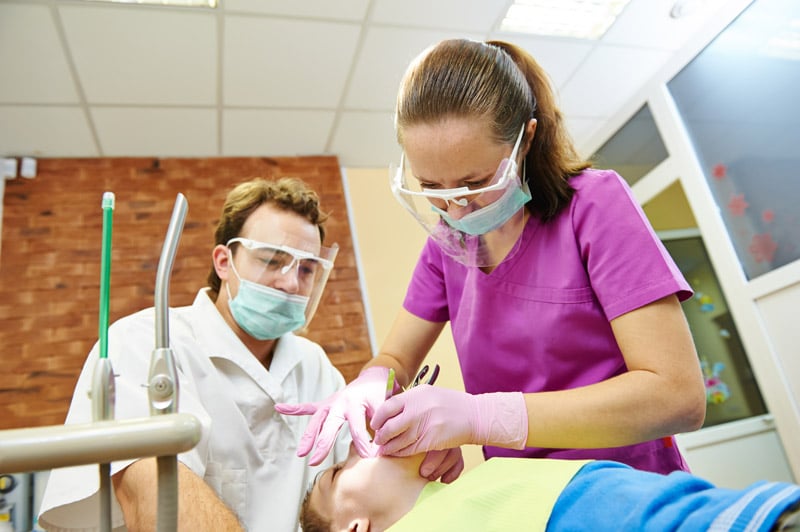
If you are one of those who avoid going to the dentist out of fear, sedation dentistry might be the answer you’re looking for. It helps patients go through the entire dental procedure with comparatively minimal pain, making the procedure a more pleasant experience.
Going to the dentist is not something that everyone loves to do; in fact, thousands of people would rather endure the pain of a sore tooth, than going to the dentist. This is where sedation dentistry comes in; it can relieve the anxiety of patients and allow dentists to perform various treatments with ease.
What is Sedation Dentistry?
Sedation dentistry refers to the use of medication to help patients relax during their dental procedures. People also often call this “sleep dentistry” although that might be a bit misleading as patients are awake during these procedures. There are various levels of sedation, and they include minimal sedation, moderate sedation, and deep sedation. Then there is also general anaesthesia, when you are completely unconscious. In dentistry, these methods are used:
- Inhaled minimal sedation – you will breathe in nitrous oxide, combined with oxygen. The gas helps you to relax and the dentist can control how much gas you inhale.
- Oral sedation – this can be in the form of a pill, which is similar to the Valium family. It will make you drowsy but you’ll still be awake.
- IV sedation – You’ll receive the drug via a vein and it also works more quickly.
- General anaesthesia – Medications will make you very relaxed or even deeply asleep, depending on the dosage given. It will take longer to awake and return to normal.
Regardless of the type of sedation your dentist chooses to use, you will likely also need local anaesthetic, which will work to numb your mouth where the dentist needs to work. This is a very effective method of relieving pain and discomfort and is regularly used in dentist visits. From healthy people that are simply afraid, to elderly people with a low pain threshold, and even children – sedation dentistry is used all around the world with great success.
The Safety of Sedation
As with most medical procedures, there is always a risk, although this is usually a very safe procedure. Certain people, like those suffering from conditions like sleep apnoea, should first discuss this with their dentist before commencing the procedure. Your dentist will go over your medical history before he or she starts, and also determine whether or not you are an ideal candidate for sedation dentistry.
You should be informed about all the details in terms of your procedure, so that you know what the risks and the benefits are, and what to expect. This will also put you at ease, knowing that your dentist will do his or her best to make it as comfortable for you as possible. Some dentists will provide you with a form that will have details about the procedure and what to expect.
Ask about the dosage, and don’t be afraid to ask your dentist how many of these procedures he or she has performed so far. Finally, your dentist will also monitor you throughout the process to ensure that everything is going smoothly, as planned. You will be monitored according to the guidelines set out by the American Dental Association. There will also be oxygen and drugs available to assist you or reverse the effects of sedation in case they are required.
Who Can Have Sedation?
People who have a very low threshold for pain, as well as people with a bad gag reflex are ideal for sedation dentistry treatment. It is also ideal for people who need a large amount of work completed, and those who cannot sit still in a dentist chair.
People who have very sensitive teeth are usually given some form of anaesthesia to help them relive the pain and relax them during a dental procedure. Sensitive teeth can be painful enough, so having a dentist perform a procedure is something that most people simply don’t want to do without help.
In some cases, sedation is given to children when they are terrified of going to the dentist, or refuse to co-operate during a specific procedure. Only a small number of dentists are properly trained to give sedation to children and not every dentist wants to do this when children are involved.
If you’re looking to learn more about sedation dentistry to find out if it’s a good fit for you, you can Contact us now.
